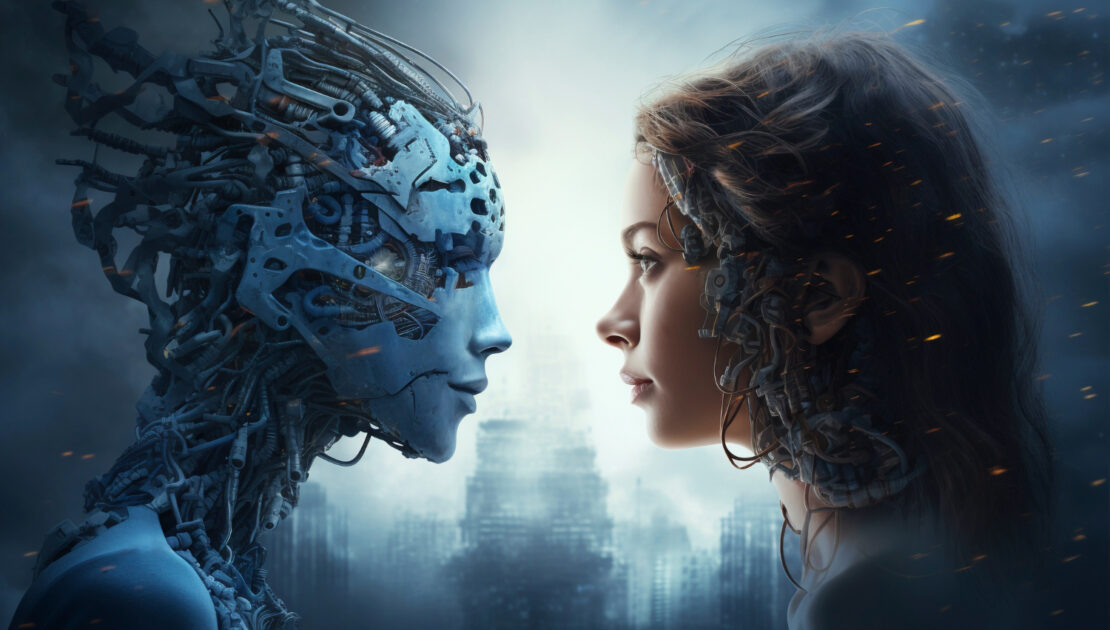Artificial Intelligence (AI) is transforming industries by automating processes, optimizing decision-making, and enhancing efficiency. However, as AI continues to evolve, businesses must determine where to draw the line between AI-driven automation and human expertise. While AI excels at processing vast amounts of data and executing repetitive tasks, human intelligence remains essential for creativity, emotional intelligence, and ethical judgment. This article explores the strengths and limitations of AI and human intelligence, helping businesses find the right balance.
AI vs. Human Intelligence: Finding the Right Balance
AI vs. Human Intelligence: Finding the Right Balance

AI vs. Human Intelligence: Finding the Right Balance
The Strengths of AI in Business
AI is revolutionizing business operations by offering speed, accuracy, and scalability that surpass human capabilities in certain areas.
- Data Processing and Analysis: AI can analyze massive datasets in real-time, uncovering insights that would take humans significantly longer to identify.
- Automation of Repetitive Tasks: AI-powered systems handle mundane tasks such as data entry, customer service chatbots, and financial reconciliations, improving efficiency and reducing errors.
- Predictive Analytics: AI-driven models forecast trends, consumer behavior, and market fluctuations, helping businesses make informed decisions.
- Personalization at Scale: AI enables hyper-personalized customer experiences by analyzing user behavior and tailoring recommendations, marketing messages, and services accordingly.
The Unique Capabilities of Human Intelligence
Despite AI’s advancements, human intelligence remains indispensable for critical business functions that require creativity, ethical considerations, and emotional intelligence.
- Creativity and Innovation: Humans generate new ideas, think outside the box, and create original content that AI cannot replicate authentically.
- Emotional Intelligence and Empathy: Human interactions rely on emotional understanding, making human-led customer service, negotiations, and leadership roles irreplaceable.
- Ethical and Moral Judgment: AI lacks the ability to make ethical decisions in complex situations, requiring human oversight in fields like law, healthcare, and governance.
- Adaptability and Critical Thinking: Unlike AI, humans can think contextually, adapt to unforeseen circumstances, and apply reasoning beyond data-driven logic.
Where Should Businesses Draw the Line?
Businesses must establish a balance between AI-driven efficiency and human-led strategic decision-making.
- AI for Efficiency, Humans for Strategy: AI should handle data-intensive and repetitive tasks, while humans focus on strategic planning, decision-making, and relationship-building.
- AI for Insights, Humans for Interpretation: AI can generate insights, but human expertise is required to interpret them and apply them to real-world business challenges.
- Augmenting, Not Replacing Human Roles: Businesses should use AI to enhance human productivity rather than replace employees entirely, ensuring a collaborative approach.
- Ethical Oversight and Governance: Organizations must implement ethical AI policies, ensuring that AI decisions align with business values and societal norms.
The Path Forward for AI and Human Collaboration
The future of business will not be AI versus humans but rather AI alongside humans. Companies that successfully integrate AI with human intelligence will drive innovation, improve productivity, and enhance customer experiences.
As AI continues to advance, businesses must remain vigilant in evaluating its role, ensuring that automation serves to empower human potential rather than diminish it. The key lies in leveraging AI’s strengths while preserving the irreplaceable value of human intelligence.
